‘It's a bit like a pub, but without the requirement of being drunk’: Why we’re all hot for a countryside sauna
The sauna is the latest wellness trend — especially one immersed in Nature. Lotte Brundle dips into why the pastime has been heating up.

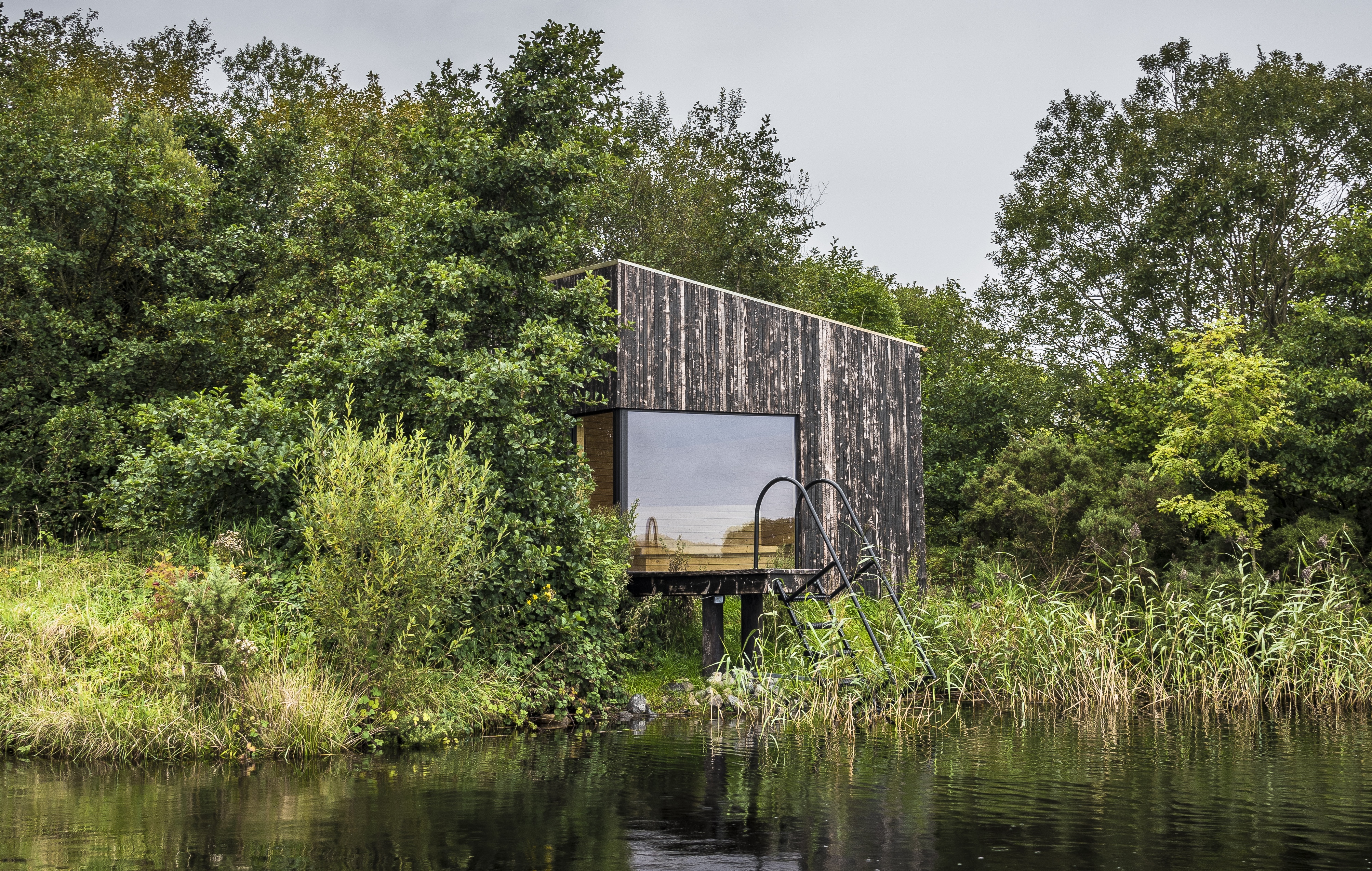
‘For me, the best sauna you can have is when it's wild, windy, awful weather,’ says Robin Bartlett. ‘You're outside, standing in the driving rain and it's freezing, but you're not cold. Then you're floating in a five degree sea, which — at any other time — you would be screaming and running out of, and probably calling for an ambulance, or at least a towel.’
Bartlett founded Sea Scrub Sauna, in Kent, alongside a friend, and his cousin, Luke, who once lived in Norway. He got into cold water swimming when Covid first struck: ‘I guess I've just loved the social connection and the physical and mental benefits of cold water swimming where I live, here in Whitstable. It’s a big part of the culture here, I would say.’ At the same time, Luke noticed a sauna renaissance in Oslo, Norway, and the spark that lit the fuse that lit the fire underneath their sauna business flickered into life. ‘People think [in] Scandinavia, everyone has saunas. Not so, really. I think it was the older generation who did it, but public saunas weren't actually that prevalent in Oslo 10 years ago, but they have exploded now,’ Bartlett says.
‘Luke got involved in that,’ he adds, ‘and saw that trend of young people who aren't drinking as much, but still want to be social. I visited him for his 40th birthday, and we chatted about it, and I tried out a sauna — alongside cold water — for the first time, and my mind was blown by the way it makes you feel.’
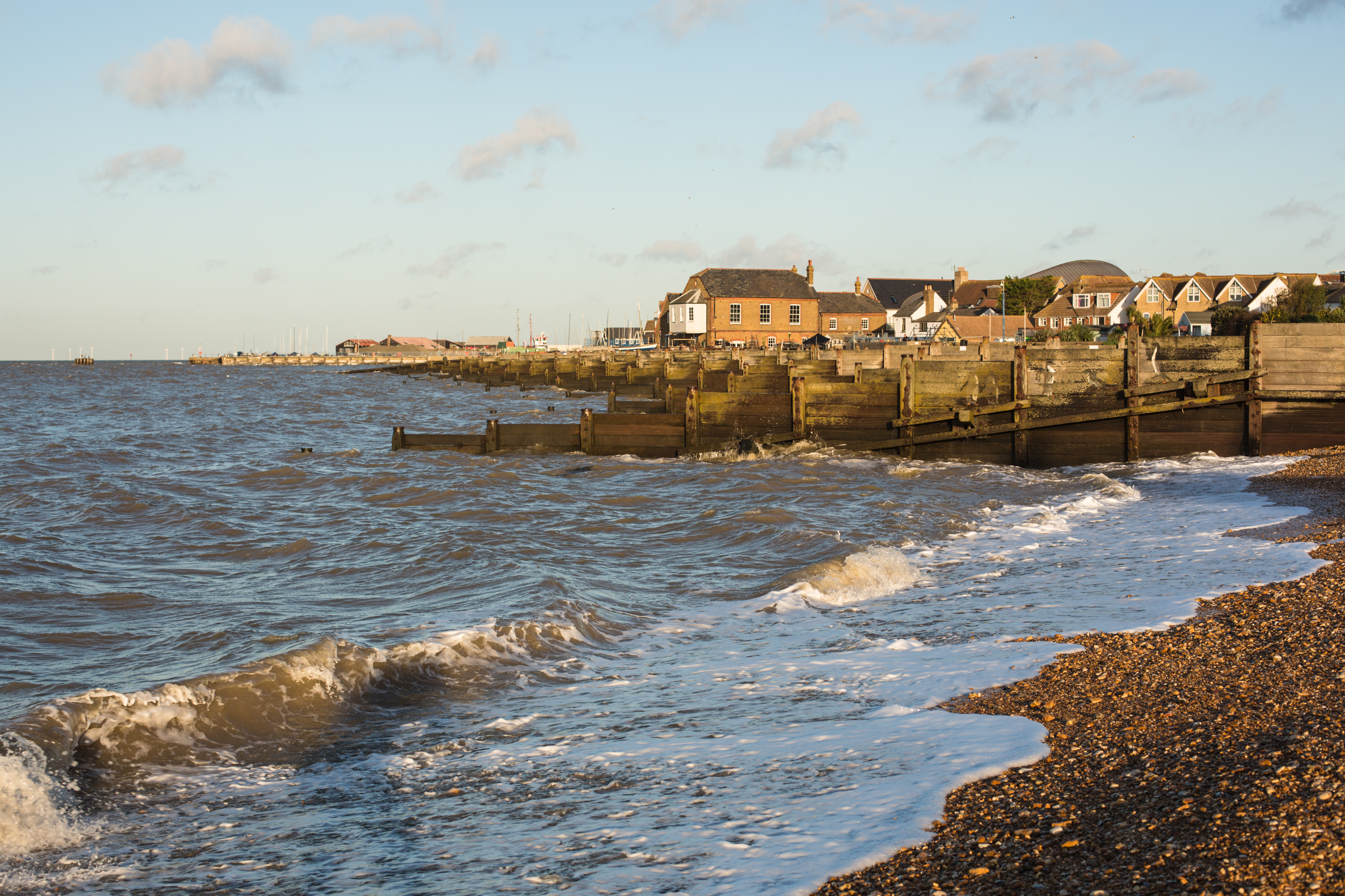
Whitstable beach — the perfect place for a post-sauna dip.
A post shared by The Whitstable Pearl (@thewhitstablepearl)
A photo posted by on
The trio have three sites across the South East; in Whitstable, Margate and in Faversham.‘The biggest thing for most people who come regularly is that it’s social,’ Bartlett says. ‘You meet all sorts in there, and you strike up amazing conversations you wouldn't otherwise have. It's a bit like a pub, but without the requirement of being drunk.’
Judith Dunlop of Scottish Seaside Saunas is living proof that the Scots are also hot for a bit of heat — though I must admit that, as a Kentish girl, a plunge in the tepid, if murky, depths of my local Whitstable seafront seems much more appealing than braving it in the dastardly cold Fife waters. However, Dunlop assures me that it’s all very worth it. ‘We are very protected from the hot and the cold,’ she says. ‘We've kind of manufactured an environment where we're not experiencing extremes, including extremes of temperature. And actually, if you are experiencing extremes reasonably regularly, you build up a robustness,' she says, referring to our natural ability to withstanding extremes better, the longer we are exposed to them.
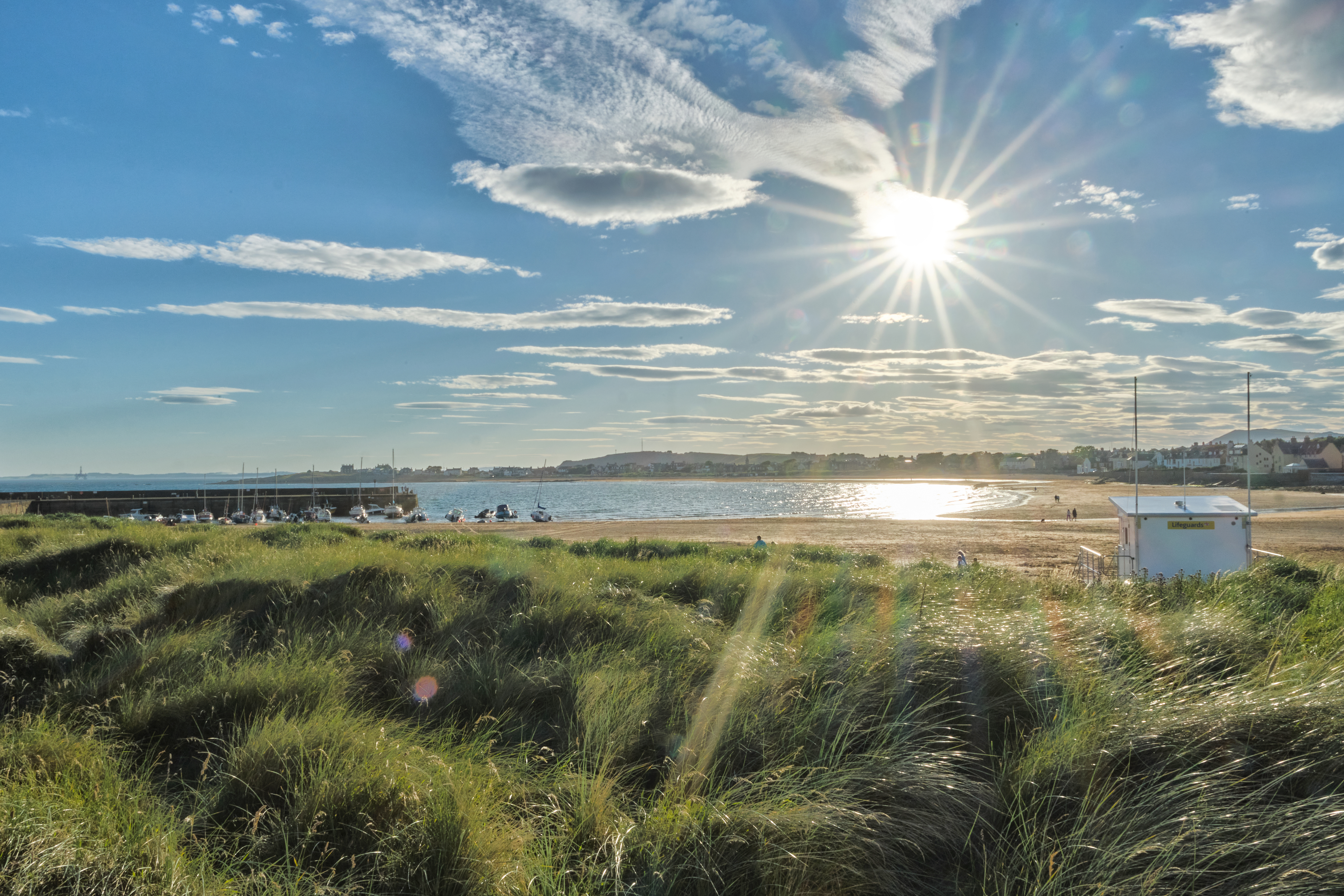
Elie Seaside Sauna looks idyllic — if you're not a southern English wimp, that is.

Where to sauna in style
- In Devon: Hálogi Fire And Ice Wellness Sauna
- In Wales: TY Sawna, in Gower
- In Kent: Sea Scrub Sauna, Whitstable
- In Brighton: Luna Hut Sauna
- In Gloucestershire: Scenic Sauna
- In Nottinghamshire: WholeHealth Sauna, Colwick
- In Dorset: The Forest Sauna, Wareham
- In Norfolk: Secret Sauna
- In Hampshire: Tuhka Talo, Andover
- In Surrey: The Quays, Mytchett
- In London: Parliament Hill Lido, Hampstead
- In Scotland: Elie Seaside Sauna, in Fife
- In Ireland: HotBox sauna on Benone Beach
- In Sussex: Wild Spa Wowo, Uckfield
- In the Lake District: La'al Sauna
- In Cornwall: The Wildwood Spa, Mawgan Porth
- In Cambridgeshire: Paus
‘My favourite time to sauna is in January, when it’s dark and cold,’ she says, coming across, at this point, a tad mad. ‘This is where the connection with Nature is important, because rather than being inside a leisure centre or a hotel spa or one of these urban saunas that are developing in the cities, you're actually walking out of the sauna into fresh air, into a natural environment, and experiencing the air temperature as it is.’
The beach where she works is where she grew up and now runs Elie Seaside Sauna, which is south of St Andrews. She also operates a sauna in the latter, and a third in Cellardyke. Anna Hammond operates Secret Sauna, which, located on the boundary of Norfolk and Suffolk, on the River Waverney, isn’t that much of a secret. Her Finnish-style sauna was originally built for those holidaying in the area, but quickly became popular with locals. She agrees that the lockdowns played a part. ‘People really took to cold water swimming and finding solace in unusual ways, and often that involved nature and being outside; being in the woods, being by the river,’ says Hammond. ‘When I launched, in 2019, there were maybe 30 or 40 outdoor saunas dotted around the country. There's now around 200-300, and that's happened in a relatively short space of time.’
Exquisite houses, the beauty of Nature, and how to get the most from your life, straight to your inbox.
For Emma O’Kelly, a sauna experience in Finland in 2016 is all it took to form a lifelong passion. She is the author of Wild Sauna and Sauna, The Power of Deep Heat. ‘For me, it's about being in Nature. I don't really like indoor gym saunas. They tend, in this country, not to be very well ventilated and they're quite often too hot. Before Finland, I had not had a good sauna in this country. I wasn't into sauna,’ she recalls. So, what has Finland got over us? ‘They’re the sauna nation,’ she says, and if the most recent Eurovision is anything to go by, with a Finnish-Swedish band performing an utterly deranged, yet catchy sauna-themed song, they’re clearly proud of their sweaty reputation.
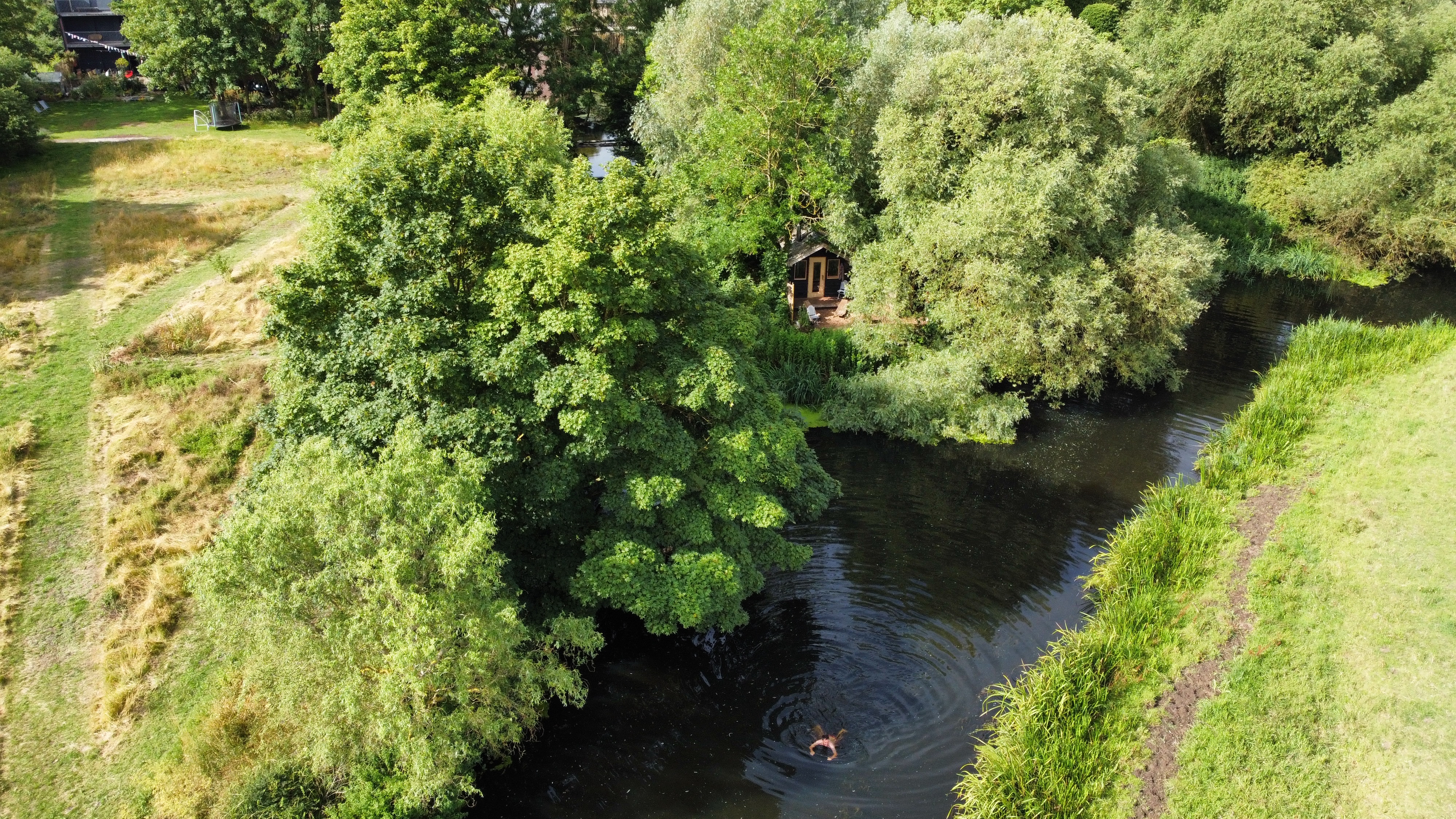
Secret Sauna on the River Waverney — the Where's Wally of wellness.
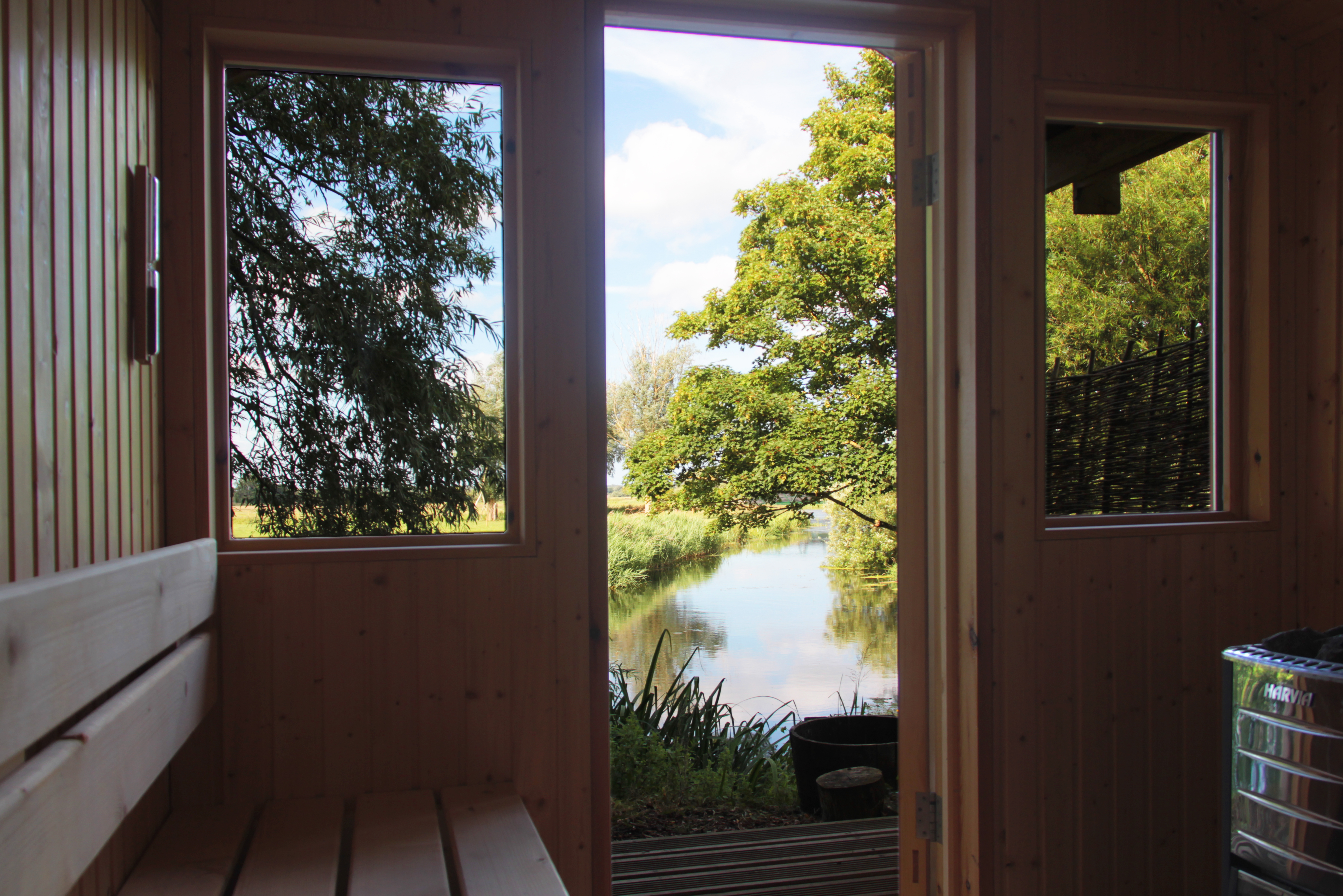
However, is it safe, and what are the real benefits, if any?
One Finnish study, conducted in 2015, reported that participants who used a sauna two to three times a week were 22% less likely to experience sudden cardiac death than those who only used it once a week. Time in a sauna has also been proven to reduce stress and relieve muscle aches, but the area, as a whole, is under researched, with more investigation needed to find out if there is a definitive link between sauna use and better health.
‘It's all about the steam,’ O’Kelly says. ‘That is what a Finnish sauna is. You know, the steam in Finnish culture has all sorts of spiritual powers. And, it's how you call up your ancestors. The steam is the essence of the sauna.’ For some, such as Katy Bracher, discovering the art of sauna was less of a spiritual experience and more one born out of necessity.
A post shared by Beach Box Sauna Spa | Brighton | Aufguss | Pirtis (@beachboxbtn)
A photo posted by on
Her own ‘sauna epiphany’ came when she was at a music festival and looking for a shower. ‘I ended up in this communal sauna environment,’ she tells me, ‘and I jumped in a lake afterwards, and was totally reborn — it cured my hangover. That was my turning point.’
Bracher couldn't find anything similar in London, where she was living at the time, so went on to co-found the British Sauna Society and, in 2021, set up Wowo, a ‘wild spa’ in Sussex. She also runs training sessions that educate participants on how to set up their own saunas in the UK. Her nickname? ‘The Sauna Master’ A hot moniker, indeed.
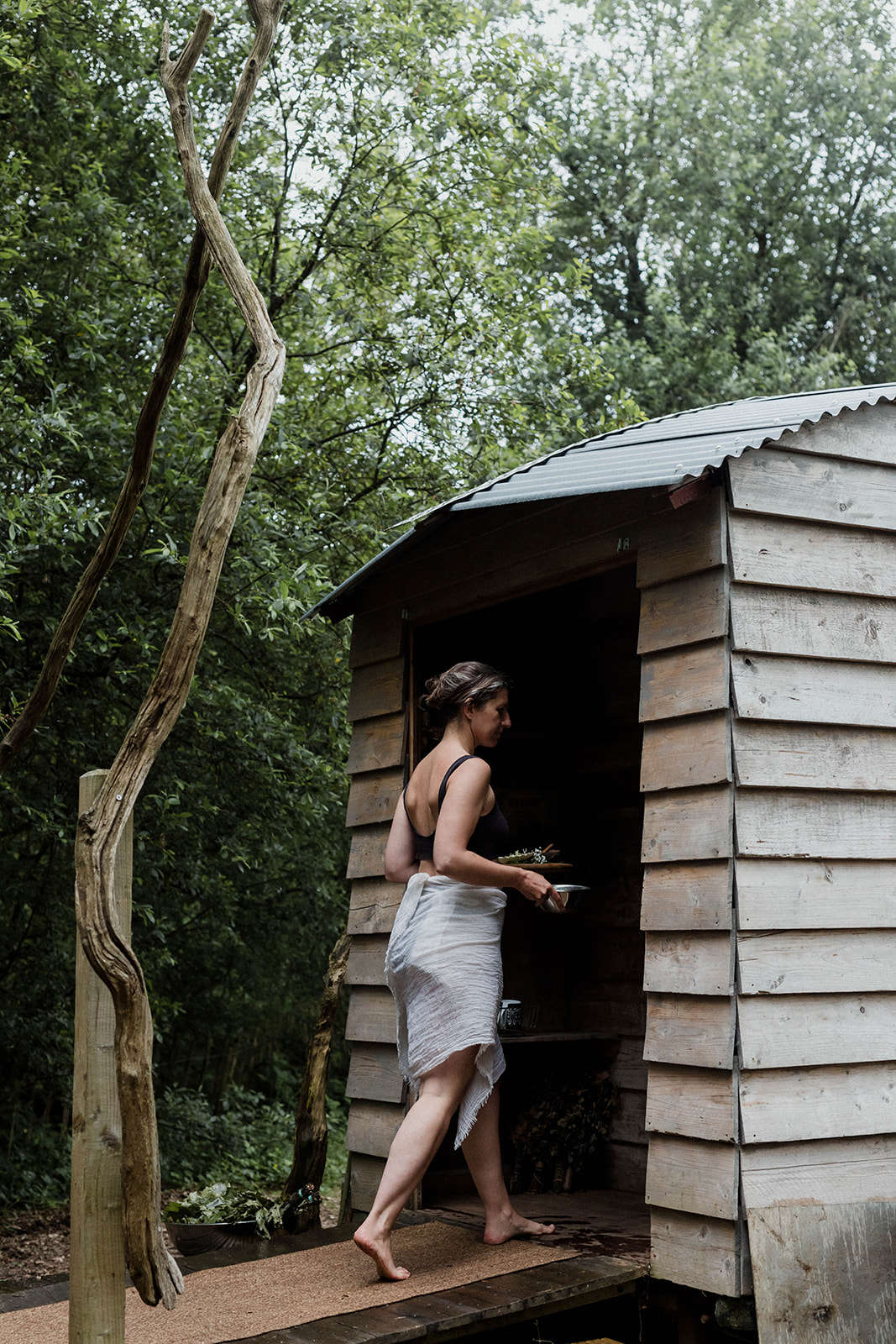
You've met The Sauna Master, now welcome to her dojo.
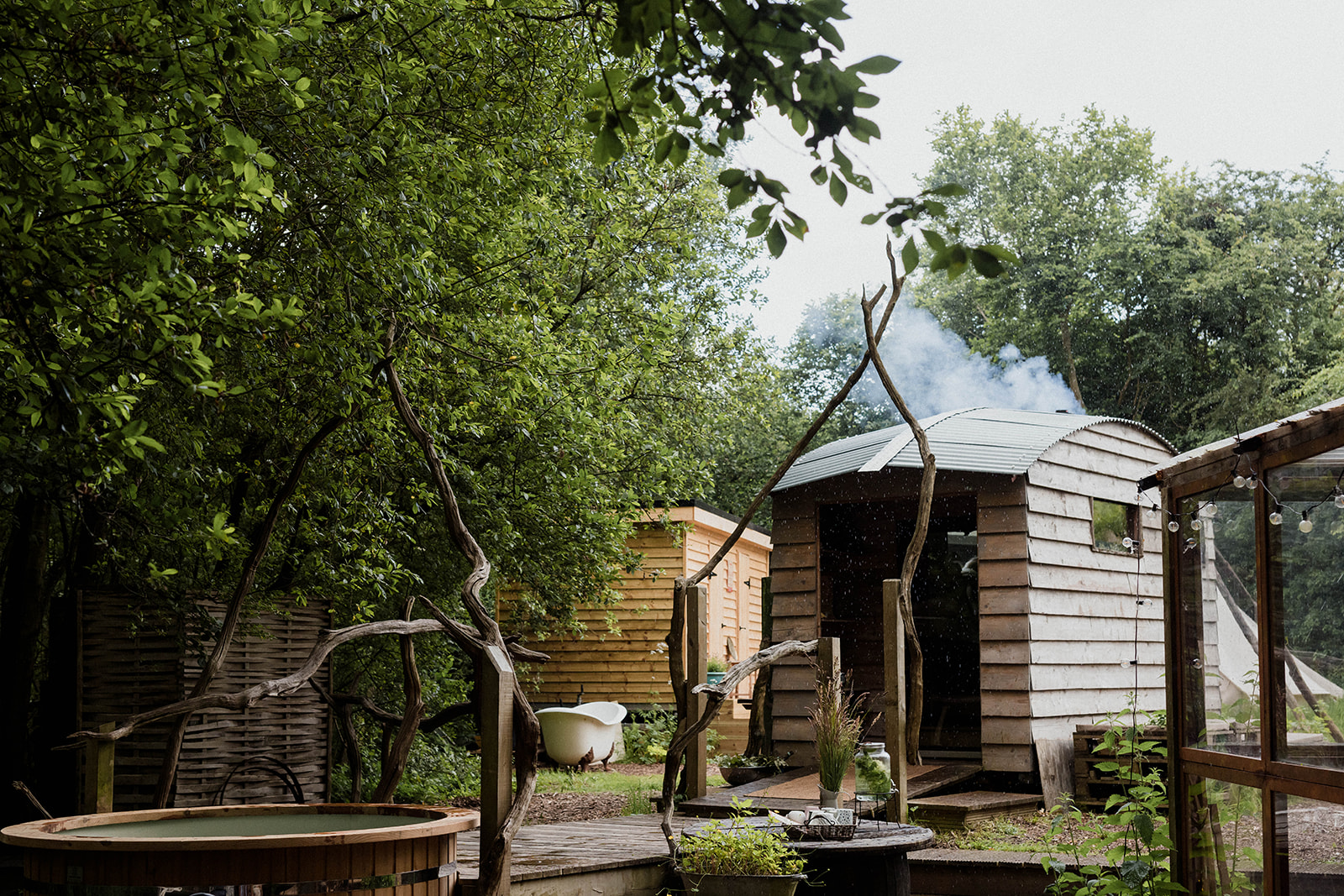
Wild Spa Wowo in Sussex.
Is it, as some believe, all woo woo? The name of Bracher's spa, after all, is only two ‘o’s away. ‘For me, I find that just having even a very small moment of Nature is really powerful,’ she counters.
'Wild Sauna' by Emma O'Kelly is out now.
Lotte is Country Life's digital writer. Before joining in 2025, she was checking commas and writing news headlines for The Times and The Sunday Times as a sub-editor. She has written for The Times, New Statesman, The Fence and Spectator World. She pens Country Life Online's arts and culture interview series, Consuming Passions.
